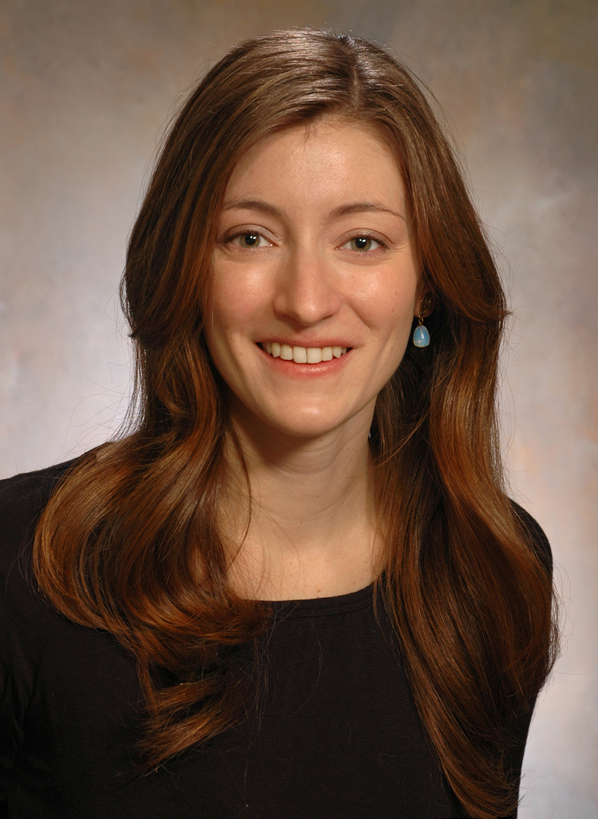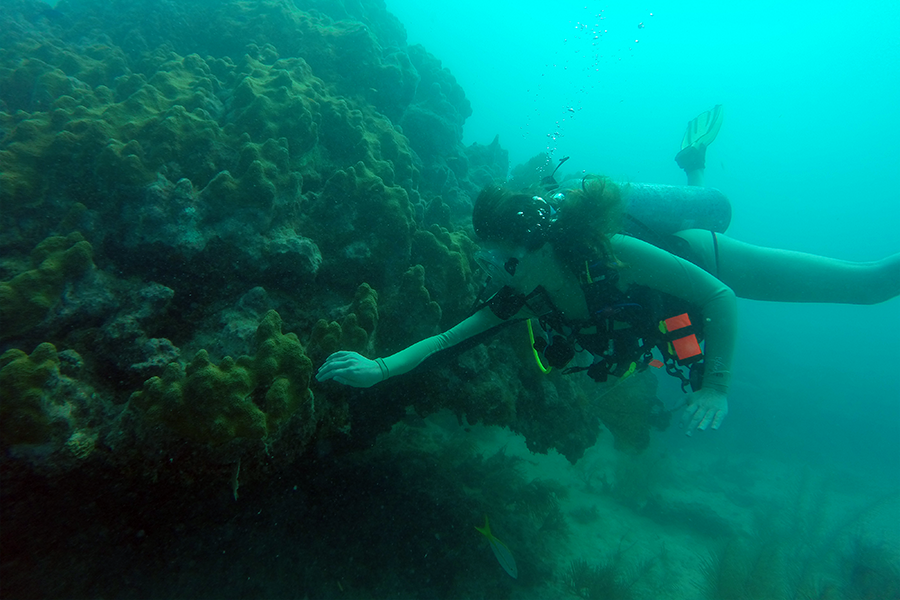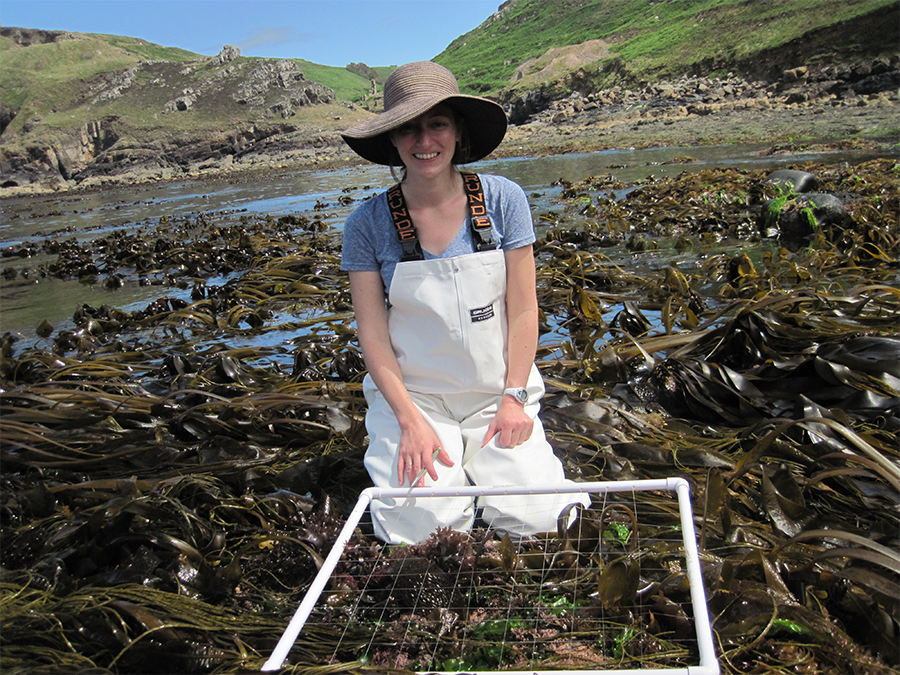FSU ecologist receives $300K gift for marine research

Joe Tatelbaum has a passion for ocean research. He seeks out where it’s being conducted and supports it. The Boston native is a co-principal of Pearl Street Holdings, Ltd., a firm involved in investing, manufacturing and consulting, along with his wife, Grace Wang. Though he had no previous ties to Florida State University, Tatelbaum did his “homework,” was impressed by an FSU ecologist and decided to make a transformative gift to her lab.
Sophie McCoy, an assistant professor in the Department of Biological Science, will receive $300,000 over three years to support her research and graduate students through the newly established Tatelbaum Ocean Research Fund. The McCoy Lab conducts a variety of marine research projects ranging from climate change to pollution. The primary focus of McCoy’s lab and her research is algae — organisms that produce about half of the world’s oxygen, making them indispensable for the survival of humanity and ocean life. But when algae does too well, it can produce suffocating blooms that blanket the ocean’s surface as well as its floor.
“What are we doing to the ocean that leads to that? Algae photosynthesize and grow faster with global warming,” McCoy said. “There’s also a process called ocean acidification — we all know there’s a problem with global warming where carbon emissions go into the atmosphere and warm the air, but it turns out these emissions are also very soluble in water. A third of all emissions dissolve in the ocean.”
That process is bad for sea life, particularly coral reefs, but most algae love it, McCoy added. Ocean acidification combined with warm temperatures and nutrient outputs from agriculture creates ideal conditions for blue-green cyanobacterial algal blooms to take over the ecosystem.

While it’s common for grants to come with instructions to focus on a narrow research subject, the Tatelbaum funding will give McCoy and her team the ability to explore multiple related topics. The primary focus will be on those cyanobacterial algal blooms, which are full of viruses and bacteria and potentially toxic. In the first year, the McCoy lab will examine precise causes of new algal blooms as well as mitigation techniques for existing ones. The team will also have the ability to explore other related subjects.
“Mr. Tatelbaum’s motivation was to enable discovery and innovation, and innovation happens when you’re able to be flexible,” she said. “He didn’t want to tie the fund to any specific project, instead it’s for marine research.”
Jeff Ereckson, director of development for the College of Arts and Sciences, said his team relishes working with donors like Tatelbaum who have a strong passion for a particular area and want to change or improve upon it. Tatelbaum was familiar with McCoy’s work and wanted to help support it in a truly helpful way, he explained.

Whereas, large public grants, for example, are more likely to be awarded only after there’s a proof of concept, McCoy said, gifts like Tatelbaum’s are essential catalysts for new scientific projects. The Tatelbaum fund will help the lab collect specimens and purchase specialized equipment, in addition to conducting research. It will also give budding FSU scientists invaluable experience.
“It’s especially great for my students. Having flexibility during your doctoral research to really thoroughly investigate and go out on a limb is the type of thing that makes your career,” McCoy said. “This gift is life changing for them. I know that was something Mr. Tatelbaum was excited about as well.”
